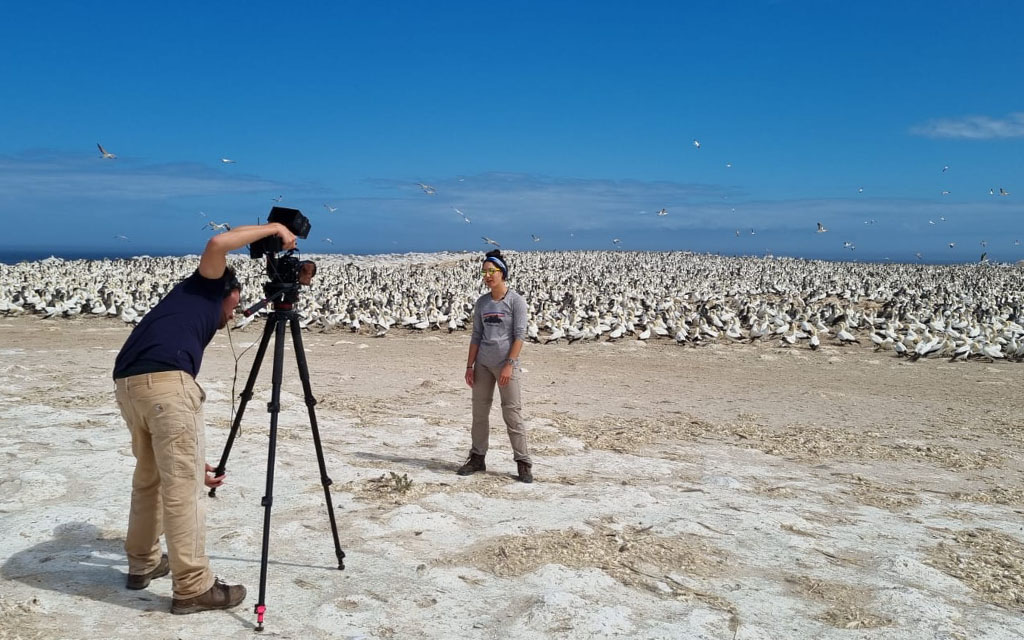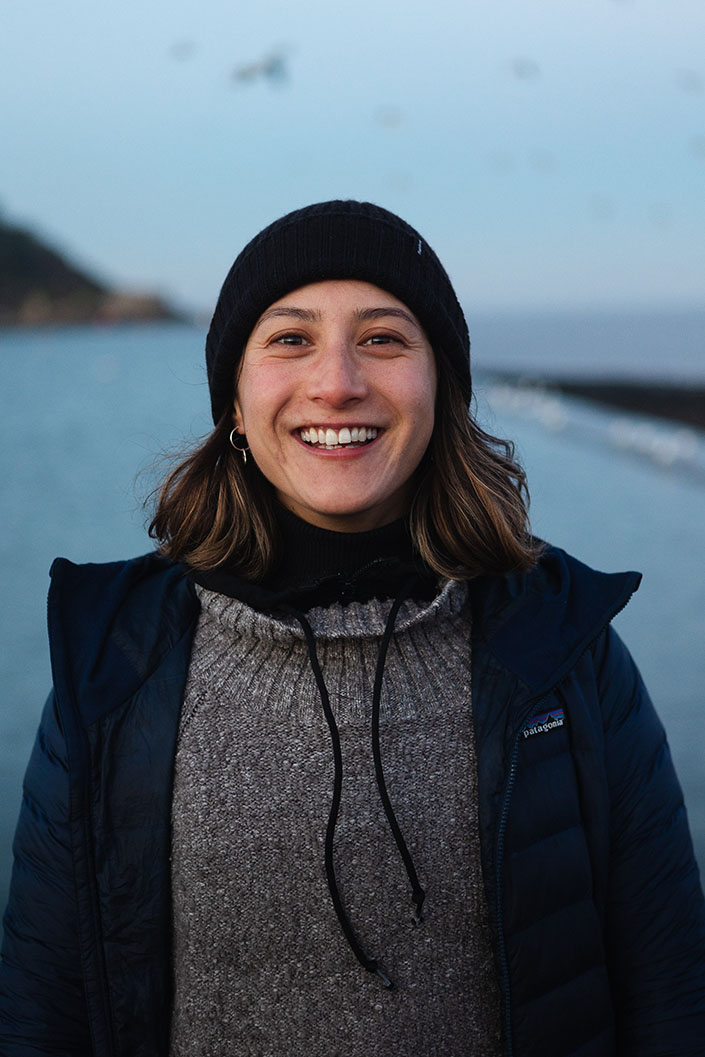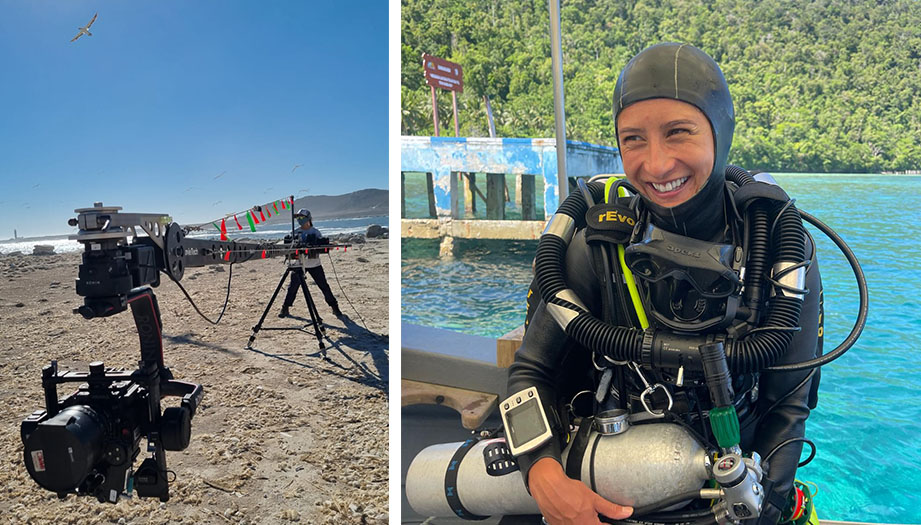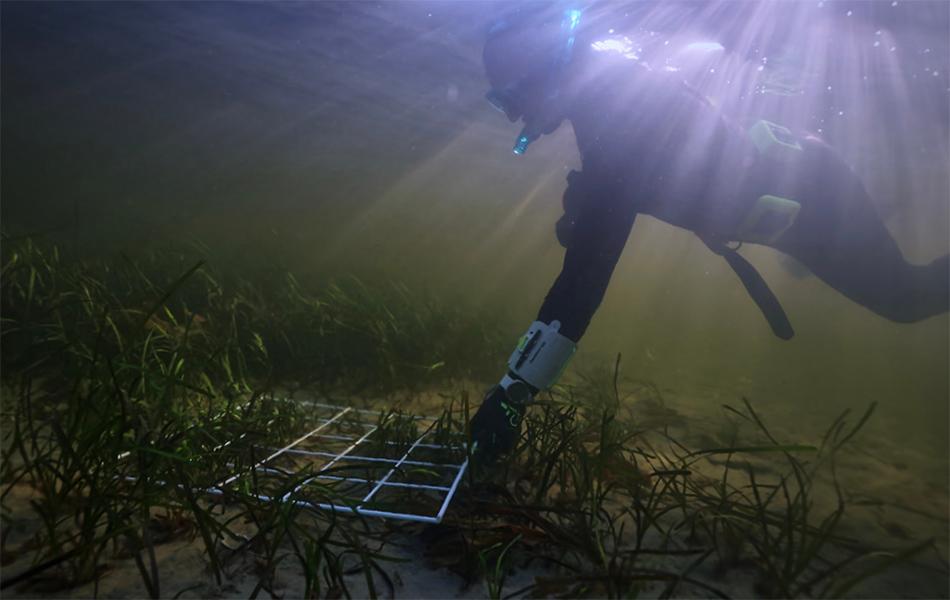
Southport BSAC club member and underwater researcher Mae Dorricott spent three years helping create this weekend's Ocean episode focusing on the Banggai cardinalfish in Indonesia, capturing stunning footage of mouthbrooding behaviour.
This Sunday, the BBC will air ‘Ocean’, the second episode in its stunning new wildlife series Parenthood, narrated by Sir David Attenborough. Documenting the trials and tribulations that animals experience while raising their young, the series was filmed over three years and on six continents, covering jungle, grasslands, deserts, and the ocean.
Produced by Silverback Films, the company behind the recent David Attenborough feature-length film, Oceans, Parenthood has already captured the imagination of its audiences. And its next episode – which airs this Sunday, 10 August - promises to be just as remarkable.
For Mae Dorricott - BSAC diver, Southport BSAC club member and underwater researcher for Silverback Films - Parenthood has also been the job of a lifetime.

Having spent three years helping to create this weekend’s Ocean episode, Mae reflects on her extraordinary experience.
A former 2017 Our World Underwater European Scholarship recipient and a marine biology graduate with a master’s in science communication, Mae has been enthralled by the underwater world since childhood. She is also passionate about engaging wider audiences in the need to protect our marine environment.
“I am a self-proclaimed water baby!” Mae explains. “I’ve been incredibly lucky to see magic in nature, especially in the ocean and feel a need to protect it. If we can share that feeling with others through these documentaries, hopefully we can keep nature and wildlife in the spotlight.”
As the underwater researcher for Parenthood’s Ocean episode, Mae was tasked with sourcing unique stories of parenting in the marine environment. During her intensive research, she discovered the fascinating Banggai cardinalfish.
“Many critters in the sea do minimal parenting, as it’s a difficult environment to hold onto your child! However, I knew that mouthbrooding would be an interesting topic to explore - it’s when a female deposits her eggs into the father’s mouth for safekeeping. It’s visually impressive to see - a little fish, mouth agape, and filled with eggs.
“I discovered that the Banggai cardinalfish not only mouth brood but are one of the very few fish to hold their eggs in their mouths until they hatch and then keep the wriggling fry there for a few more days until spitting them out somewhere safe. It was screaming to be filmed!”
With her idea given the green light, Mae was tasked with leading the shoot, her first time as director. This involved coordinating a 72-hour journey for her four-strong team by plane and sea to the Banggai archipelago in Central Sulawesi, Indonesia. Home for the next two weeks was a traditional homestay right on the beach, which Mae describes as ‘paradise’. But she was initially concerned that, after all the research and planning, they would struggle to find the Banggai.
“That first day, I was so anxious - what if they weren’t there? But that was soon dispelled as we swam through the lush seagrass that merged with the coral reef to find Banggai in nearly every nook and cranny.”
The underwater camera operators were actually able to capture the elusive ‘egg transfer’ from the mother to the father Banggai on the very first dive.
“The team would spend nearly six hours a day in the water, and it took my breath away every time I dived there. It is the most biodiverse place I’ve ever been to. We’d mark up the best groups of Banggai with SMBs and return to them daily, watching the fish closely for the key behaviours and waiting for the right moment to press record.”
They also recorded footage of the subsequent release of the now-hatched fry from a male Banggai’s mouth onto the coral reef. The BBC website has since described the footage Mae’s team captured of the Banggai as ‘one of the most charming moments of the series’. This, says Mae, ‘fills her with immense pride’.

“It’s one of the first stories I found and the first story I was able to run with and direct. I believed it would make an engaging story filled with colour, wonder, and character and so to see the baby Banggai faces peer out of their father’s mouth on screen, with Sir David Attenborough narrating it all…well, it certainly helps with the imposter syndrome!”
Having qualified as a BSAC diver at the age of 14, and with a UK scuba diving dad (BSAC’s North West Regional Coach, Stephen Dorricott), Mae credits her UK diving experiences for helping to equip her for the role of underwater researcher.
“Going on BSAC club trips has given me the team skills that have been vital to my career so far - understanding what we need to do collectively to get the job done and getting stuck in where it’s needed, whatever that task may be. And it’s important to keep skilling up as there’s always something new to see, and something new to learn.”
With her Ocean episode finally set to air on Sunday, Mae hopes her story of the Banggai cardinalfish will inspire more people to connect with and protect the marine world.
“Humans learn through stories, and this empathy is key to protecting our natural environments. Parenthood is a series of stories strung together with a theme of raising the next generation in a changing world. I think that resonates with pretty much everyone,” she adds.
Parenthood episode 2, ‘Ocean’ is on BBC1 on Sunday, 10 August at 7.15pm. The whole series is also now available on BBC iPlayer.




